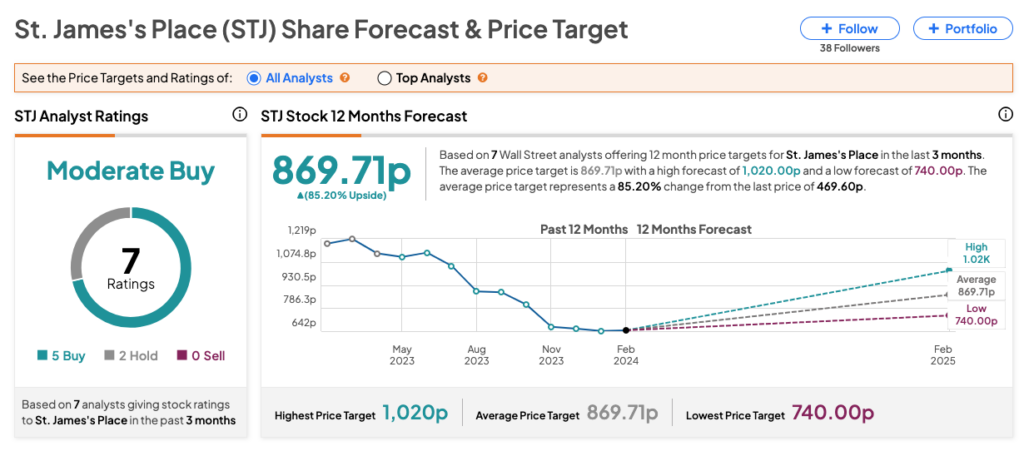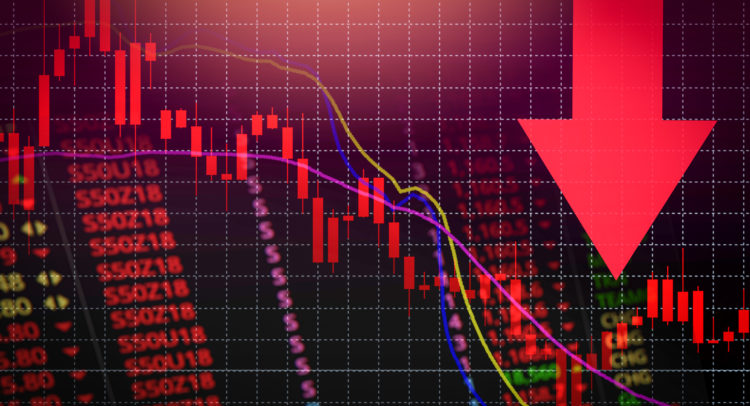In major news on UK stocks, shares of FTSE 100-listed St. James’s Place PLC (GB:STJ) fell sharply as the wealth manager reported rising costs related to customer complaints and slashed its dividends in its 2023 annual results. STJ stock went down by 23% at the time of writing, dropping to its lowest level in more than 10 years.
Invest with Confidence:
- Follow TipRanks' Top Wall Street Analysts to uncover their success rate and average return.
- Join thousands of data-driven investors – Build your Smart Portfolio for personalized insights.
In the last 12 months, St. James’s stock has declined by 62%, mainly due to the company’s decision to lower its product fees in response to regulatory pressures. Moreover, higher interest rates and volatile market conditions have dampened investor sentiment.
St. James’s Place is an investment management company that provides a range of services, including wealth management, retirement planning, and financial planning.
2023 Results Hit by Complaint Costs
St. James’s noted a substantial rise in client complaints towards the end of last year related to high fees charged by the company and services customers claim not to have received. This compelled the company to allocate £426 million for potential client refunds and resulted in a loss after tax of £9.9 million for 2023, down from a profit of £407.2 million in 2022.
Consequently, the company reduced its shareholder payouts, lowering its final dividend per share from 37.19p to 8p. The total dividend for the year amounted to 23.83p, down from 52.78p last year.
The company recorded gross inflows of £15.4 billion in 2023, marking a 9.4% decrease from £17.0 billion in the previous year. However, the total funds under management surged by 13% on a year-over-year basis to £168.2 billion by the end of 2023.
Is St. James’s Place a Good Stock to Buy?
On TipRanks, STJ stock has received a Moderate Buy consensus rating based on five Buy and two Hold recommendations. The St. James’s Place share price target is 869.71p, which implies an upside potential of 85% from the current trading levels.










